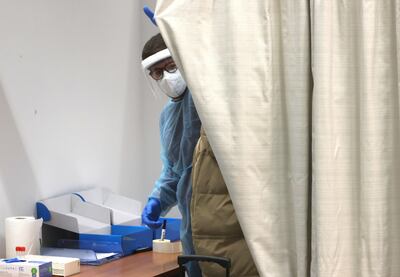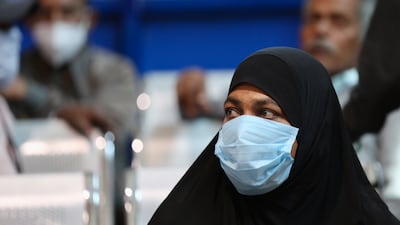No one likes to be reminded of bad times. Therefore, it is entirely understandable that those of us who lived through the bleak years of the Covid-19 pandemic would be reluctant to go back to a regime of social distancing, PCR tests, mask wearing and near-constant hand washing.
As unwanted as some of these small preventive steps are, however, now may the time to consider incorporating some of them back into our daily lives. The World Health Organisation has reported a 52 per cent increase in new Covid cases over the past four weeks, with more than 850,000 new infections recorded. This is largely down to the spread of a new Sars-CoV-2 coronavirus variant called JN.1, which accounts for 44.1 per cent of Covid cases globally.
Classified as a “variant of interest” by the WHO, JN.1 has been detected in China, India and the US, among other countries. Although alarm should be avoided, some of the information available on this variant is concerning, with the WHO this week describing the “high transmissibility of JN.1 in humans”. Its spread is also taking place during winter in the northern hemisphere, which is a time of increased respiratory illness generally. If we factor in the high amount of seasonal travel – domestic and international – for the Christmas and New Year festive season, then complacency should be avoided.

That said, it is important to keep things in perspective. Paul Hunter, professor of medicine at the University of East Anglia in the UK, suggested to The National this week that there is no current evidence that JN.1 causes more severe sickness than other variants, adding that a Covid infection this year “is much less likely” to cause an illness severe enough to cause a person to have to go to hospital, compared to the same time last year.
But for those who think they can shrug off a mild Covid infection, there are many people who cannot: the elderly, the unvaccinated or those who have other health problems. For these people, a Covid infection can result in a much more serious situation. That is why it is good to see some governments act on vaccination and booster shots: Bahrain, for example, has become one of the first countries to offer the latest Pfizer XBB 1.5 booster as a defence against new variants.
Covid is now an endemic disease and a reality of life for many of us. There is no such thing as a truly “post-Covid” world. The virus will continue to spawn mutations and although governments can always do more to tackle the disease – improved messaging about booster shots and other preventive measures would be a start – it is down to us to exercise individual responsibility to curb Covid’s spread. That means wearing a mask where appropriate, getting a PCR test if one feels unwell and isolating if the result comes back positive.
Much has been achieved in taming a disease that spread fear and panic when it first rampaged through the population. The good news is that through scientific advances and international co-operation, Covid has been largely reduced to the level of just another respiratory sickness. That said, now is not the time to squander the progress that has been made by being blasé about carrying a virus that is as adaptable as we are.


